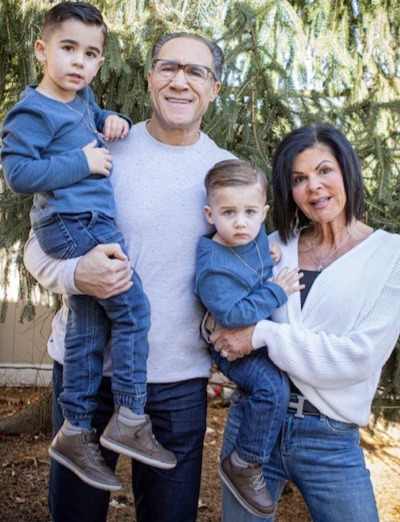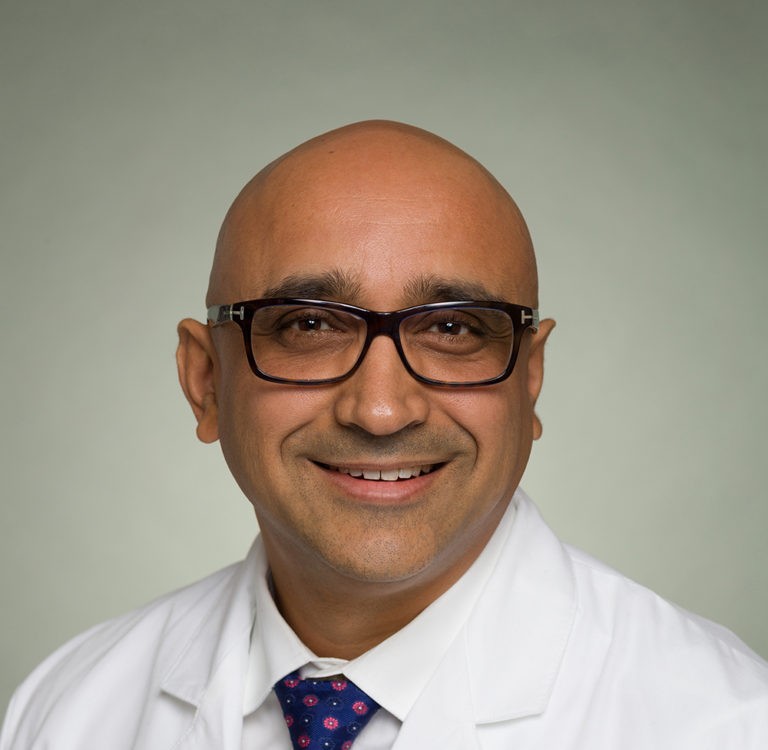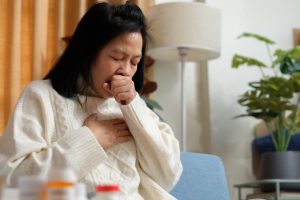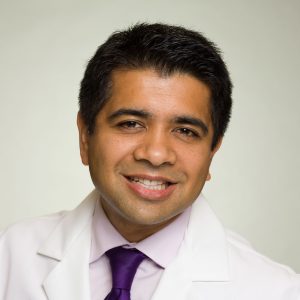
How Does Prostate Cancer Affect Your Sex Life?
Cancer and its treatment often impact a person’s quality of life. In the case of prostate cancer, a man’s sex life may be affected. Sexual
HIPAA Alert: Potential Data Breach Learn More
Questions on Oncology, Hematology and/or Infusion Clinical Services due to COVID-19 Crisis – CALL 833-698-1623
Important Information for Our Patients Regarding the Coronavirus.
RCCA Providing Area Cancer Patients with Access to Care During Coronavirus Outbreak
RCCA Offering Patients Virtual Visits During Coronavirus Pandemic
Paulette Stallone thought that the nurses looked worried, and that worried her.
“I said to my husband, ‘Something is very wrong; they all seem really nervous.’ He tried to reassure me and talked about the importance of staying positive,” the Manalapan resident says in recalling the ominous vibe she felt in a hospital recovery area following a colonoscopy in February 2009.
Although Ms. Stallone is an optimist by nature and possesses a can-do attitude honed over many years of long-distance running, she could be forgiven if she was struggling to remain upbeat that day. The colonoscopy was the latest procedure she had undergone to try to determine the cause of the debilitating fatigue, dangerously low potassium levels, and other complaints that had plagued her for more than a year. There had been numerous imaging studies and blood tests along the way, as well as antibiotic treatments and hospital stays, including one to remove an abscessed ovary. Despite all those evaluations and interventions, the doctors still had not been able to identify the underlying reason for her problems.
The colonoscopy provided the answer she had long sought but now contemplated with dread: at age 44, and with two young children, she had rectal cancer. Further, the procedure showed that the cancer had spread to her lymph nodes.

As Ms. Stallone and her husband returned home late that afternoon, a new challenge arose. How would she break the news, which she was still processing herself, to her mother, who was at the house watching the children? She was just starting to talk with her mother when the phone rang. The caller explained that she worked for Dr. Bhavesh Balar, and that Ms. Stallone’s gastroenterologist had informed Dr. Balar – a medical oncologist – of the colonoscopy results and had asked Dr. Balar to see Ms. Stallone.
“I said, ‘What day does he want me to come in?’ and Dr. Balar’s office manager said, ‘Can you come over now?’ This was late Friday afternoon. When my husband and I arrived at Dr. Balar’s office, all his staff had gone home. He waited there to meet with us, and he spent an hour and a half learning about my case, explaining in detail what he recommended and why, and answering all my questions,” Ms. Stallone says. The oncologist also arranged for her to have a positron emission tomography (PET) scan. That sophisticated imaging study revealed that Ms. Stallone’s cancer had spread to her lung, meaning that she had Stage IV disease.
While Dr. Balar’s manner in relaying that finding was gentle, the regimen required to treat the advanced cancer was tough. It entailed Ms. Stallone receiving chemotherapy five days a week for about six weeks, along with radiation. “I wore a chemo bag 24 hours a day five days a week,” Ms. Stallone recalls. That initial treatment was followed by surgery, another six months of chemotherapy, and then a second surgery to resect the lung metastases.

Sixteen years later, Ms. Stallone credits her recovery to several factors. They include the love and support of her husband, children, and extended family; the caring and skill of Dr. Balar and her other physicians; the ramen noodles that were the only food she could keep down during the worst weeks of her chemotherapy; and, she adds, running three miles a day, four days a week, throughout most of her treatment!
Ms. Stallone explains, “I was sitting there at chemo one day and I said to myself, ‘I’m going to give up running because this is just too much.’ When I went home and told my daughter, Nicole, who is my running partner, she looked at me and without thinking twice, said, ‘If you give up on running, you’re going to give up on yourself.’ I realized that she was right and that I wouldn’t be the same person. I decided that I wasn’t going to let cancer get to me, so I put on my running shoes and got moving. From that day on, I did my treatments and then I went out and pushed myself to run.”
She says, “When I realized how important running was to me, I tried running on my treadmill first and then, when I saw that I could do that, I went back to running outside, but I was careful to be smart about it and not push myself too much.” Ms. Stallone adds that Dr. Balar embraced running not only as a prescription for her emotional well-being but also for his own health. “At a visit about a year later, he explained that he had joined the gym at CentraState Medical Center and was running on the treadmill there,” she explains with obvious delight.
Ms. Stallone chose to receive her chemotherapy at the Freehold, NJ, office of Regional Cancer Care Associates (RCCA), where Dr. Balar practices. “I kind of kept that a secret at first because I didn’t want people telling me, ‘You have to go to New York City for treatment. You have to go to one of the big centers there.’ I didn’t have the time to do that, and there was no way I could have gone back and forth from the city while on chemo – the same chemo that I was given at RCCA, which is 20 minutes from my home. Also, I would walk into Dr. Balar’s office and the receptionist would say, ‘Hello, Paulette, how are you feeling today?’ The nurses would come out to get me and set up my treatment right away. They were wonderful and kept a close eye on me and took care of whatever I needed. Dr. Balar or one of the other doctors in the office would check on me. The doctors at RCCA are amazing. I can’t thank them enough, particularly Dr. Balar. He was with me every step of the way and was always on top of things. Right at the start, he said that I needed a PET (positron emission tomography) scan, which insurance often will not approve. He got that done and coordinated my care with my other doctors, and was there for me the entire time, not only with excellent care but also with great encouragement. I owe my life to him.”
That life centers around family. Today, Ms. Stallone and her husband of 37 years dote on their daughter’s two children and are looking forward to their son’s upcoming wedding. She is grateful for every day that she has to enjoy with the people in her life. She explains, “When I was sick from the chemo, there were times when I would think, ‘I can’t take this anymore.’ Then I would close my eyes and think of my family. I couldn’t stop because I had children to raise. I used to get irritated when people would say, ‘You have to fight,’ because the fighting can be so hard, so now I tell people to fight as best they can on any given day. If they can’t eat that meal today, that’s OK. Eat a little less or something that you can eat, but don’t give in to the cancer because you are stronger than it is.”
In the 16 years since her initial diagnosis, Ms. Stallone has devoted her talents and considerable energy to fighting rectal cancer. That includes organizing runs and walks (in which Dr. Balar and his family have participated) and other events that have raised more than $450,000 for cancer research and treatment. She also is active in support groups, organizes meals for people on chemotherapy, and makes herself available to other people with the disease, who frequently call or text seeking perspective and hope from someone who has “been there.”
Dr. Balar, the medical oncologist who has cared for Ms. Stallone since 2009, says, “Paulette is an inspiration to everyone who encounters her. She exudes warmth and caring, and her commitment to helping others has made a difference in the lives of countless individuals through the events she has organized, the support she has provided, and the hope that she offers all who hear her story. She even got me running!”
++++++++
Ms. Stallone’s doctor, Bhavesh Balar, MD, is a board-certified medical oncologist and hematologist who practices in RCCA’s Freehold, NJ, office. Regional Cancer Care Associates is one of the nation’s largest networks of oncology specialists. Dr. Balar earned his medical degree, cum laude, from the University of South Florida College of Medicine, where he also completed his residency in internal medicine. Dr. Balar then completed his fellowship in medical oncology and hematology at the H. Lee Moffitt Cancer Center and Research Institute in Tampa. He has treated patients in central New Jersey since 2006, practicing at RCCA’s Freehold office with Drs. Jeffrey Silverberg, Gurpreet S. Lamba, Aileen L. Chen, and Carl Henningson. Dr. Balar is among 100+ medical oncologists and hematologists who practice with Regional Cancer Care Associates (RCCA), one of the nation’s largest networks of oncology specialists. RCCA has more than 20 locations near you across New Jersey, Connecticut, Massachusetts, and the Washington, D.C., area. RCCA’s cancer specialists see more than 30,000 new patients each year and provide care to more than 265,000 established patients, collaborating closely with those patients’ other physicians. RCCA physicians offer patients innovative therapies, including immunotherapies and targeted therapy, as well as access to approximately 300 clinical trials. In addition to serving patients who have solid tumors, blood-based cancers, and benign blood disorders, RCCA care centers also provide infusion services to people with a number of non-oncologic conditions—including multiple sclerosis, Crohn’s disease, asthma, iron-deficiency anemia, and rheumatoid arthritis—who take intravenously-administered medications.
To learn more about RCCA, call 844-346-7222 or contact us.
For more information or to schedule an appointment,
call 844-346-7222. You can also schedule an appointment by calling the RCCA location nearest you.

Cancer and its treatment often impact a person’s quality of life. In the case of prostate cancer, a man’s sex life may be affected. Sexual

Lung cancer is commonly considered a smoker’s disease, as cigarette smoking is the most significant risk factor for its development. However, not all cases are

For Avishek Kumar, MD, the journey into cancer care began with a deep family history of healthcare and took shape during his years of military
Sources: 1. American Cancer Society. Key Statistics for Colorectal Cancer. Available at https://www.cancer.org/cancer/types/colon-rectal-cancer/about/key-statistics.html. Accessed May 17, 2025. 2. Siegel RL, Kratzer TB, Giaquinto AN, Sung H, Jemal A. Cancer statistics, 2025. CA Cancer J Clin. 2025; 75:10-45.

Regional Cancer Care Associates is one of fewer than 200 medical practices in the country selected to participate in the Oncology Care Model (OCM); a recent Medicare initiative aimed at improving care coordination and access to and quality of care for Medicare beneficiaries undergoing chemotherapy treatment.